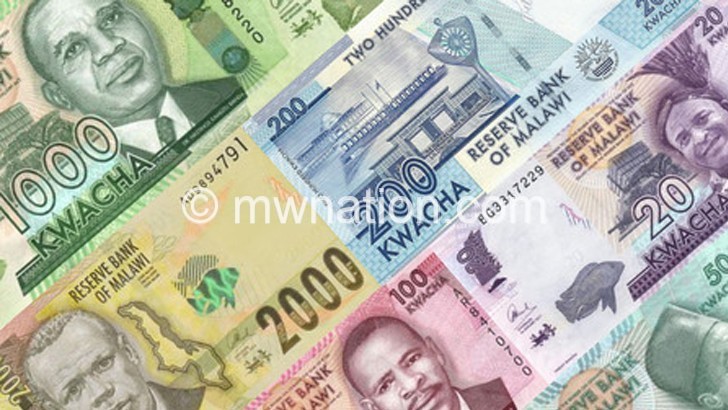Kwacha back on depreciation path
The Malawi kwacha, which slightly appreciated last month to trade at K816 against the dollar, is back on its depreciation path, Reserve Bank of Malawi (RBM) figures show.
Analysts, however, say the depreciation of the local unit is not surprising due to the continued demand and supply imbalances in the economy.

A latest weekly financial market development report shows that the local unit has depreciated against the dollar, British pound and South African rand, but appreciated against the euro.
The figures show that in the process, the local unit lost K2.89 against the greenback, K51.23 against the British pound and K2.16 against the South African rand.
As of Monday this week, the local currency traded at around K823 against the dollar, according to an RBM daily financial market development report.
In an interview yesterday, market and investment analyst Cosmas Chigwe said the kwacha depreciation was expected to continue as businesses resume.
He said: “As earlier put, the kwacha appreciation was due to reduced demand for foreign currency. We, however, had and continue to have a deficit between supply and demand of foreign exchange and the kwacha is responding to this.
“This would thus continue to put pressure on the kwacha to depreciate.”
Earlier, market and investment analyst Bond Mtembekeza also projected that the country still has a backlog of foreign exchange applications, as such, the kwacha would soon go on a depreciation path.
Bridgepath Capital chief executive officer Emmanuel Chokani indicated that there was no need to read too much into the kwacha appreciation, observing that supply and demand imbalances still persist.
“The structural challenges around the economy are still prevailing as such these could just be short-term fluctuations,” he said.
The kwacha has been sailing in troubled waters for the past year, with figures from the central bank showing that it lost about K7 to the dollar as of November last year.
Analysts attributed the depreciation of the kwacha to the sustained supply and demand imbalances compounded by the reduced trading activity.





